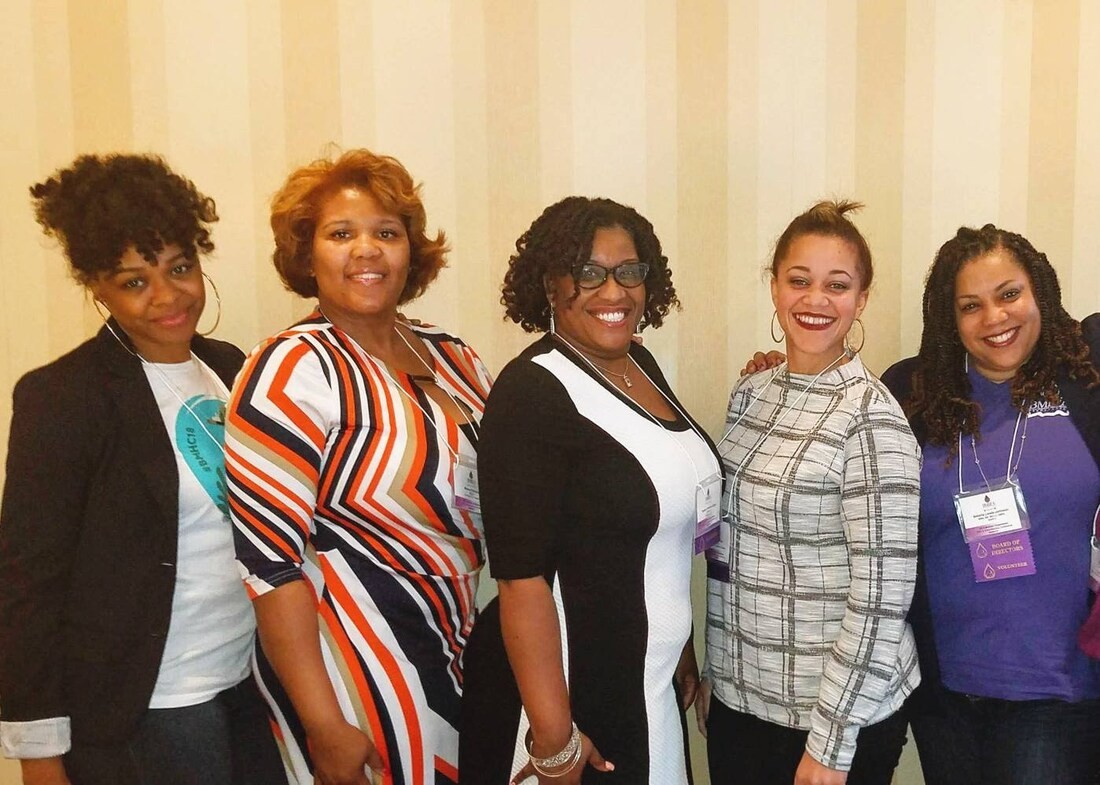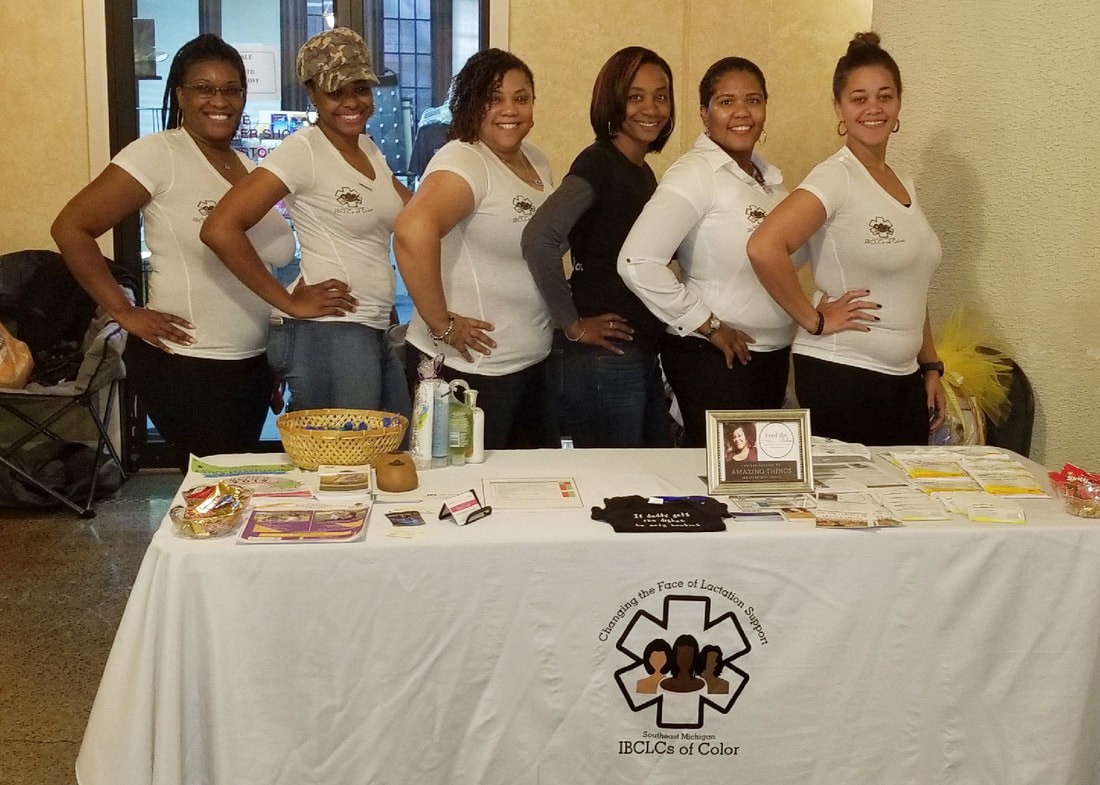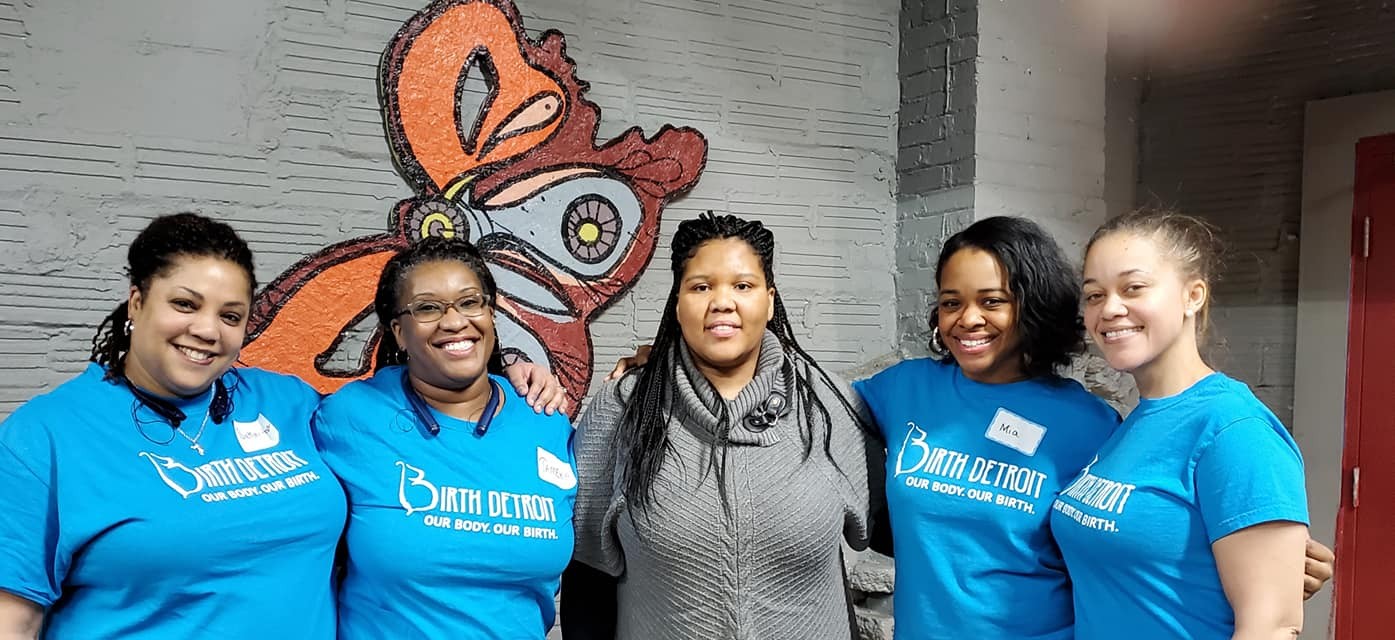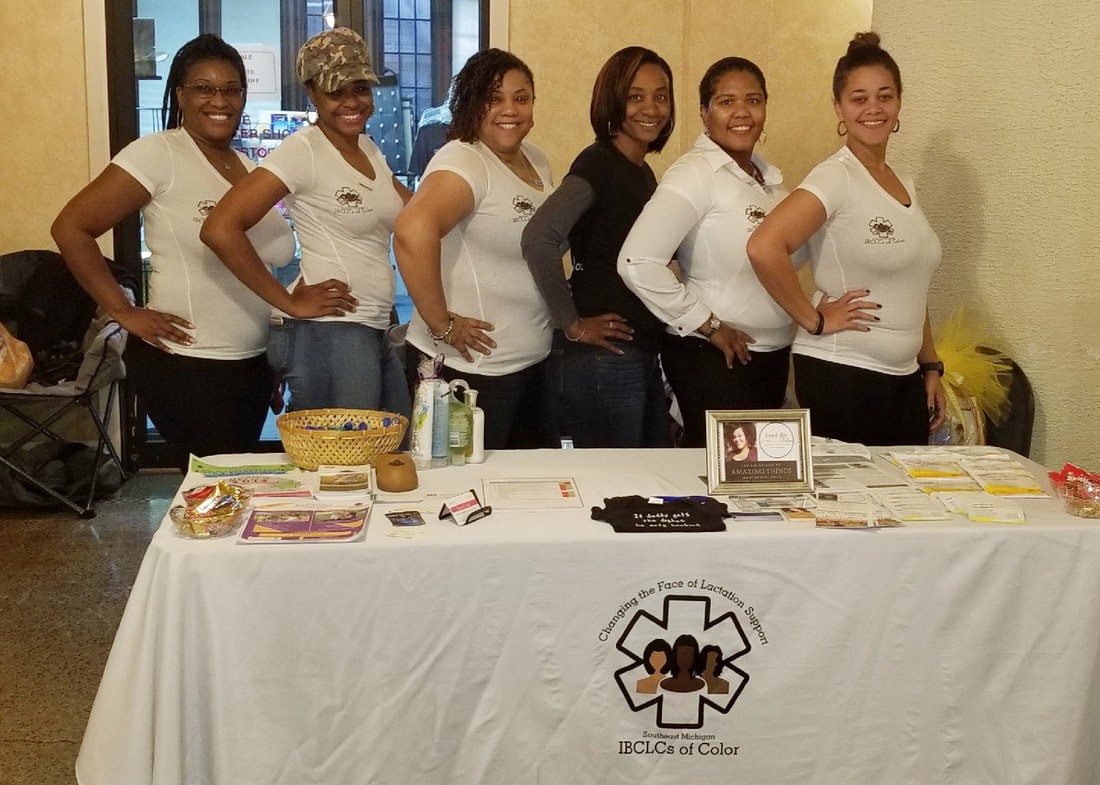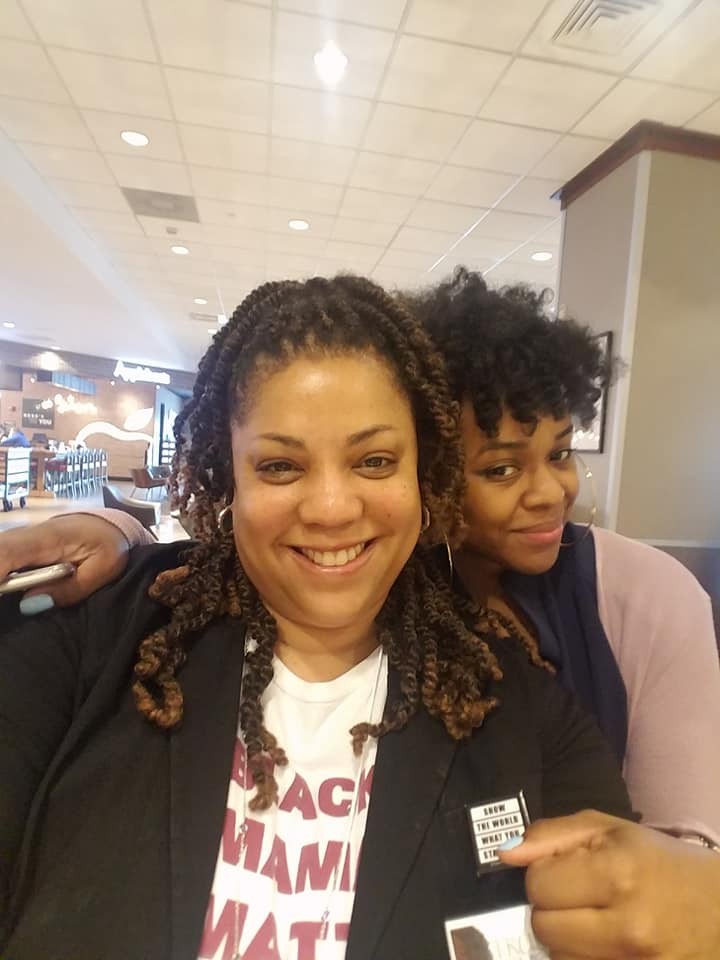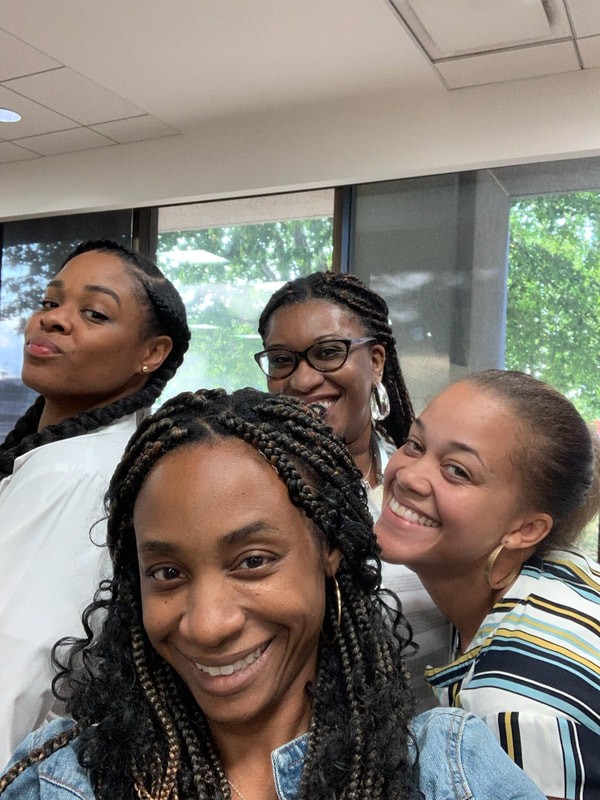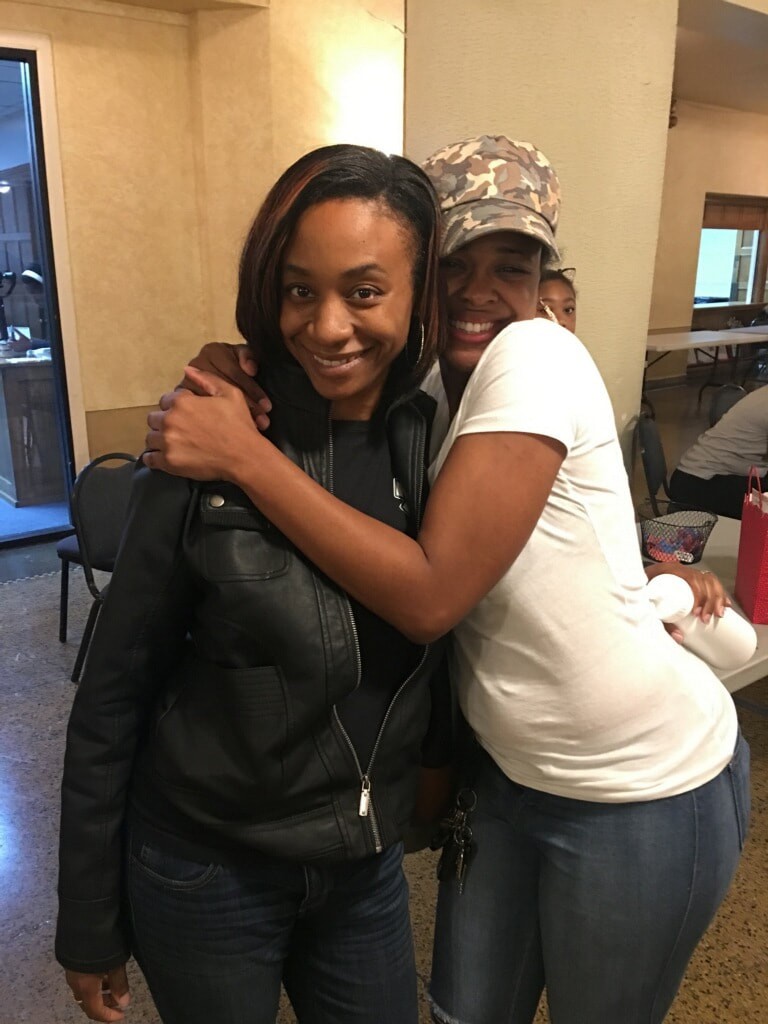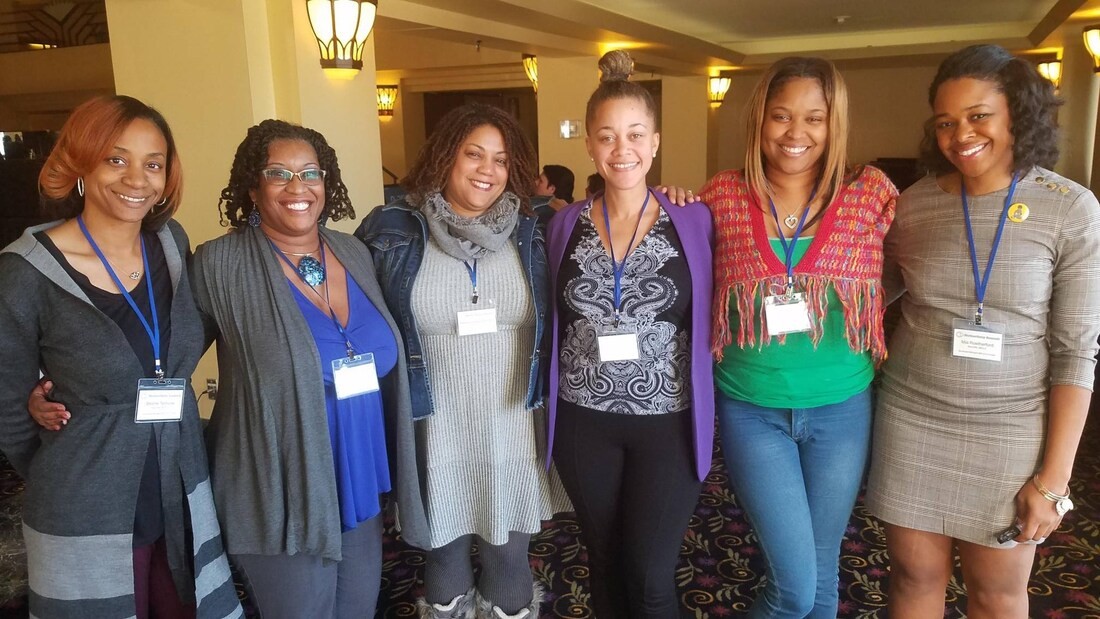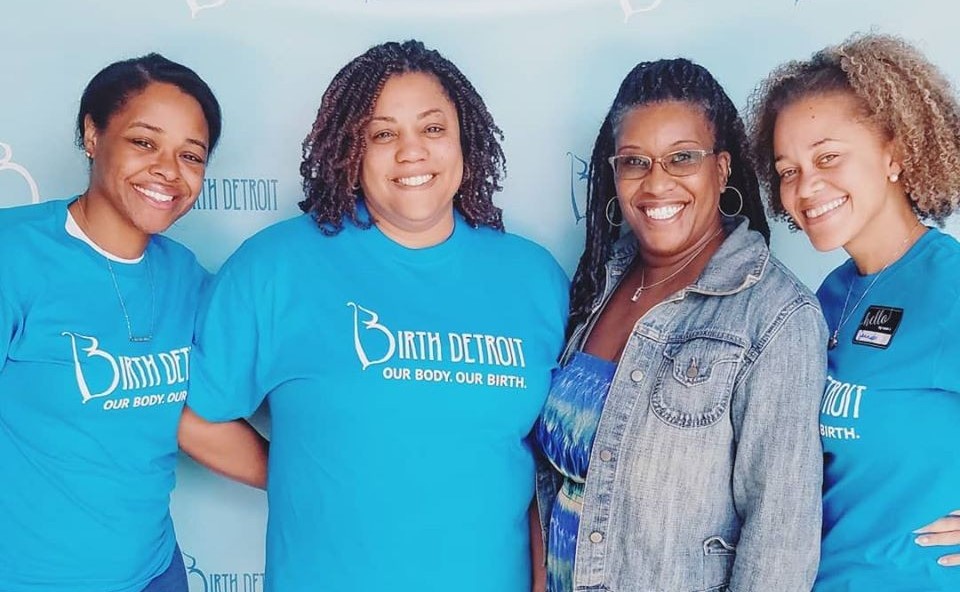

Today we’d like to introduce you to Southeast Michigan IBCLC’s of Color .
Hi Southeast Michigan IBCLC’s of Color, it’s an honor to have you on the platform. Thanks for taking the time to share your story with us – to start maybe you can share some of your backstory with our readers?
In Detroit, racial inequities lead to breastfeeding rates of about 30 percent for Black families with infant mortality more than twice the national average (1). Southeast Michigan IBCLC’s of Color (SEMI) consistently ‘show up’ for families by providing services, developing advocacy, leveraging relationships, and mentoring countless other professionals entering the field of Black maternal health work. Members of SEMI lead in a vast array of capacities all throughout the region. Our commitment to reducing disparities in Black maternal and infant mortality in the Southeast Michigan region is visible in the significant programming of our organization.
In celebration of Black Breastfeeding Week 2017, a photoshoot was held to highlight African American Lactation Consultants in the metro Detroit area. That created a desire for a more formal group, and out of discussions that sprang from that event, Southeast Michigan IBCLCs of Color was formed in 2018. We have attended community health fairs, local birth worker gatherings and coalition meetings, as well as fielding invitations to present at several conferences.
I’m sure you wouldn’t say it’s been obstacle free, but so far would you say the journey have been a fairly smooth road?
SEMI is actively involved in collaborative efforts to support breastfeeding with other organizations of color in the SE Michigan region, such as Birth Detroit, Metro Detroit Midwives of Color, Michigan Breastfeeding Network, MDHHS WIC, Wellness Plan, Nurse Family Partnership, and Mommies in the D. We also use our position and platforms to teach equitable lactation support practices to mainstream dominant culture healthcare providers who serve families in our community, as well as provide breastfeeding education and support to families of color. One of our greatest challenges along the way has been having the necessary financial resources to be equitably compensated for the timely, skilled and accessible care that we provide to the families in our care. We are grateful for the support that has been given and remain hopeful for the continued support to come.
Can you tell our readers more about what you do and what you think sets you apart from others?
As an organization, SEMI endeavors to meet the unique needs for mentorship, fellowship and professional growth by IBCLC’s of Color in the Southeast Michigan region, supplying the community with equitable access to culturally-appropriate lactation support and advocacy. SEMI’s members are trusted in their community to provide professional support from within the local community. To quote our members, “We are the families we serve.” SEMI provides breastfeeding education and skilled birth and lactation support for families in the Metro-Detroit region. Our International Board Certified Lactation Consultants provide consultations with families to protect, support, and promote breastfeeding. In the face of COVID-19, SEMI members have worked diligently throughout the pandemic, addressing fears from within the community about birth and infant feeding options. Human milk is one way to safeguard the future of Detroit’s families both during and after COVID-19. During the pandemic in response to lack of access to breastfeeding education, SEMI developed a prenatal breastfeeding class curriculum to be provided to BIPOC community members, facilitated by Black IBCLC’s. These classes are weekly and free of charge to those seeking breastfeeding education prior to giving birth. We also offer Holding Space: Breastfeeding and Mental Health Support during a Pandemic which is a weekly breastfeeding support group co-facilitated with mental health professionals that is accessible to BIPOC community members. Additionally, Mama’s Mobile Milk arose out of a real need from within the Detroit community to counter the detrimental, long-lasting effects of separating infants from their breastfeeding parent due to NICU hospitalization, temporary foster care, and custodial issues. During the COVID-19 pandemic, hospitals are restricting NICU patients to one visitor only. This structural barrier limits the ability for families to provide human milk for the most-fragile babies who need the life-saving properties of human milk. Research has demonstrated that racial disparity in care begins in the NICU. Black preterm infants in the NICU receive poorer care than white infants, including racial disparities in NICU use of human milk for Black infants. To meet the needs of these infants who so desperately need human milk, SEMI has developed a program to deliver milk to NICU infants and other infants separated from the breastfeeding parent in order to promote breastfeeding, speak out against maternal/infant separation, and fight racial injustice. Mama’s Mobile Milk specifically addresses health equity for Black families while fighting the high rates of maternal and infant mortality rates within the local community. SEMI has created a sustainable model for providing human milk to families, making it possible for Black families and communities to thrive. The Community Milk Sharing Depot is another resource that centers the needs of marginalized communities that are often underserved when trying to access human milk from Human Milk Banks. Specifically in Michigan, there is one Milk Bank (Bronson Mothers Milk Bank) on the west side of the state. Human milk through the Milk Bank is often prioritized to hospital neonatal intensive care units (NICU) around the state, while the need remains great for families, specifically Black and Indigenous families that are otherwise ineligible to qualify. Access for families that do qualify in most circumstances is usually only until an infant is 35 weeks gestation. Human milk can be purchased from the milk bank per ounce but is oftentimes inaccessible for Black and Indigenous families, due to the barrier of high cost (with a range of $8-$30/oz). Trauma, stress, maternal mental health related challenges, producing enough milk at the birthing parents’ own body, among other issues often makes it incredibly difficult, while caring for their fragile infant, to produce sufficient milk quantity thus the need for access to supplemental human milk. Additionally, it is traditional practice for Black and Indigenous families to share their milk with other families, though due to colonial re-framing, sharing human milk in community has shifted to the term informal-milk sharing. Community Milk Sharing is a reclamation of what has always been a normal and traditional practice, most especially in crisis and emergency situations. In Michigan, there currently are a handful of Milk Depots where human milk can be dropped off at a site and then transported to the Bronson Mothers Milk Bank. This Community Milk Sharing Depot is led by Black Lactation Professionals, with adherence to both traditional practice, and policies and procedures to ensure safety and community-centeredness. The Community Milk Sharing Depot will keep the human milk that is collected within the community, ensuring that Black and Indigenous families have access to human milk due to low supply, medical need for supplementation, insufficient glandular tissue, or medical conditions between parent or child.
How do you think about happiness?
We aspire to experience reclamation and liberation for Southeast Michigan families of color with access to equitable and skilled lactation support as we provide meaningful and culturally representative care for us, by us.
Contact Info:
- Website: https://www.semiibclcofcolor.org/
- Instagram: https://www.instagram.com/semi_ibclc.oc/?hl=en
- Facebook: https://www.facebook.com/SMIBCLCsofColor/
